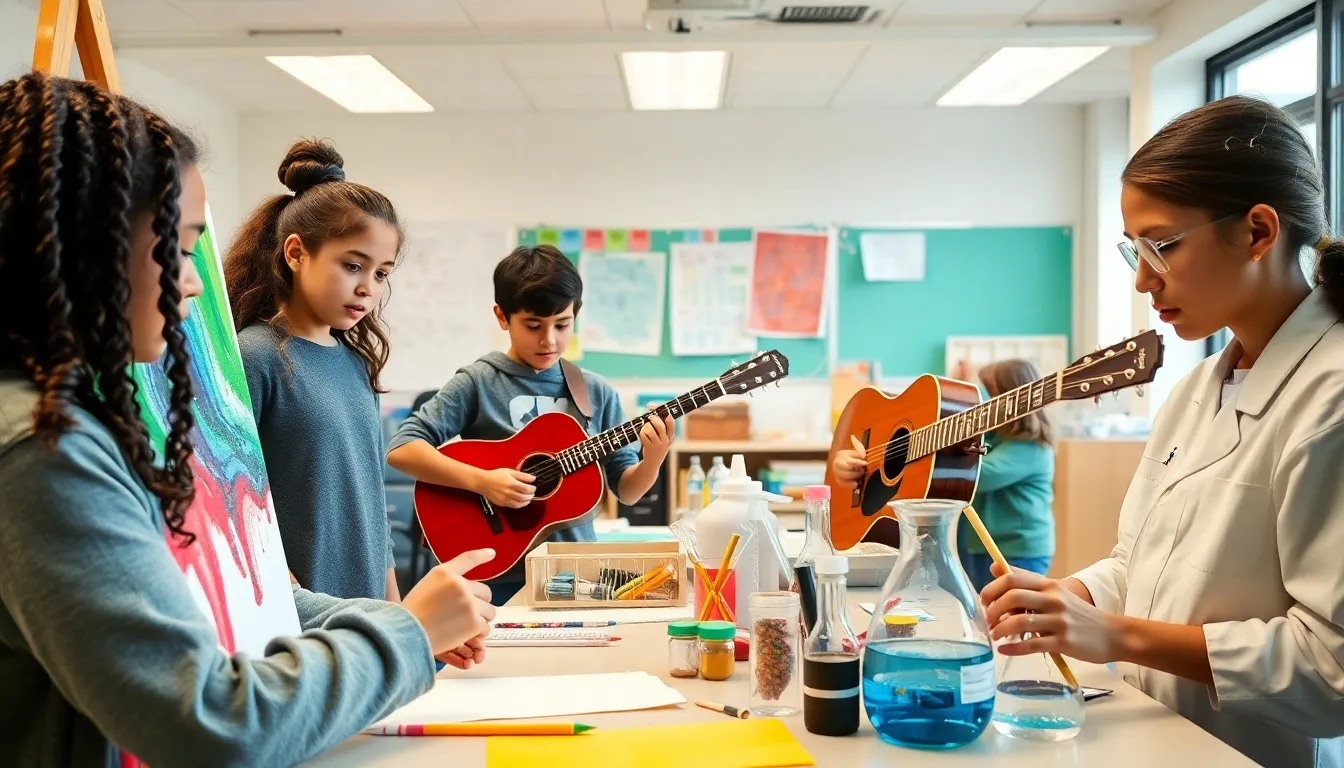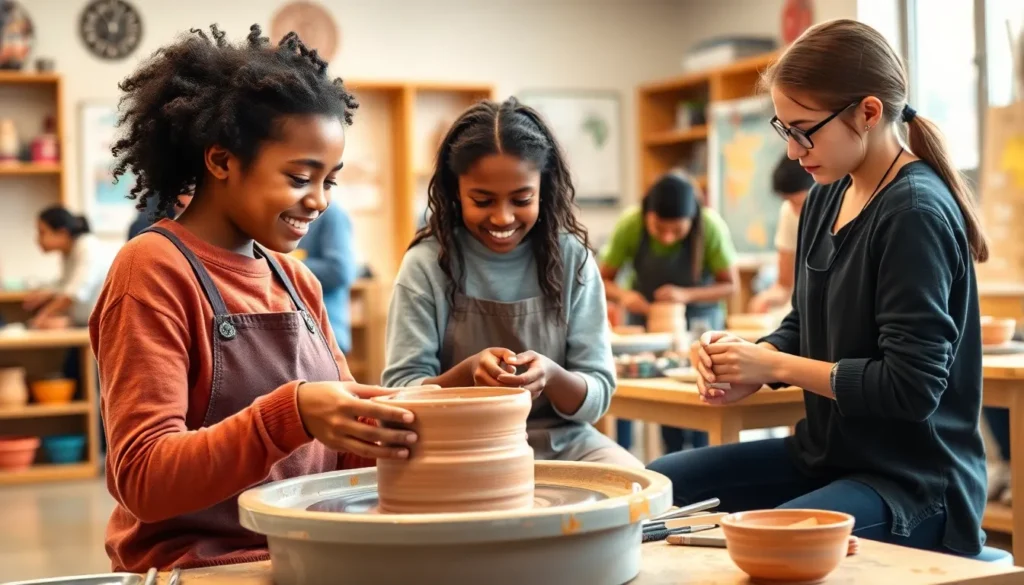Table of Contents
ToggleImagine walking into a classroom where the only rule is to have fun while learning something new. That’s the magic of elective classes! These courses are like a buffet for the brain, offering students a chance to explore interests beyond the core subjects. Whether it’s mastering the art of pottery or diving into the world of robotics, elective classes unleash creativity and passion.
Understanding Elective Classes
Elective classes offer students a chance to explore diverse interests beyond core curriculum subjects. These courses enhance the overall educational experience.
Definition of Elective Class
An elective class is a course that students can choose to take instead of mandatory subjects. Common examples include art, music, and foreign languages. These classes typically require no prerequisites, allowing students to select based on personal interests. Schools often categorize elective classes as either full-year or semester-long options. They aim to provide flexibility and choice in academic schedules.
Importance of Elective Classes
Elective classes play a crucial role in developing students’ skills and interests. They foster creativity through hands-on activities and practical applications. Additionally, elective courses encourage self-discovery and boost motivation. Engaging in diverse subjects helps students build a well-rounded educational background. Students often develop critical thinking and problem-solving skills through electives. Ultimately, these classes contribute to greater overall satisfaction in the learning journey.
Types of Elective Classes

Elective classes fall into two primary categories: academic electives and non-academic electives, each serving distinct educational purposes.
Academic Electives
Academic electives enhance the core learning experience. They cover advanced subjects in disciplines like mathematics, science, and humanities. Students might find courses such as psychology or statistics within this category. Taking academic electives can strengthen analytical skills and deepen comprehension of complex topics. Engaging in these classes allows students to explore specific areas of interest at a higher level, often preparing them for future studies. Pursuing academic electives also cultivates critical reasoning and research abilities, invaluable for success in both higher education and career paths.
Non-Academic Electives
Non-academic electives focus on personal development and creativity. These classes typically include arts, music, physical education, and life skills. Students may choose courses like drama, graphic design, or culinary arts. Involvement in non-academic electives enhances creativity and promotes emotional intelligence. Participating in these activities provides opportunities for self-exploration and helps develop social skills through teamwork and collaboration. Additionally, non-academic electives encourage relaxation and stress relief, contributing to a balanced educational experience.
Benefits of Taking Elective Classes
Elective classes offer significant advantages in a student’s educational journey. These courses unlock opportunities for exploration and skill enhancement, contributing to a richer learning experience.
Exploration of Interests
Students discover their passions through elective classes. By engaging in subjects like art or robotics, they explore diverse interests beyond core subjects. Discovering new hobbies can lead to greater enthusiasm for learning. Personal interests often shape future career paths, making elective classes pivotal. Opportunities arise for self-exploration and developing unique skills through hands-on projects. Exposure to varied subjects fosters a broader perspective on education. Many students find new areas of talent they might not have identified otherwise.
Enhancing Skills
Elective classes play a crucial role in skill development. Critical thinking thrives in courses that challenge students to analyze and create. Non-academic electives, like drama or graphic design, nurture creativity and emotional intelligence. Teamwork is frequently emphasized in these environments, helping students build collaboration skills. Academic electives strengthen subject comprehension, enhancing analytical abilities in subjects like psychology or statistics. Personalized learning experiences encourage students to take ownership of their education. Practical skills gained in elective classes often translate into real-world applications, making them invaluable for personal and professional growth.
Choosing the Right Elective Class
Choosing the right elective class involves careful consideration of individual interests and academic goals. Several factors influence this decision.
Factors to Consider
Interests play a significant role in selecting an elective. Identify passions, whether they lie in art, science, or technology. Future career aspirations should also guide choices. Exploring relevant electives enhances skills needed for desired professions. Academic strengths provide additional insights. Opting for classes that align with existing talents can boost confidence and engagement. Class availability can limit options as well. Check the school’s offerings, as some electives may only be available during specific terms. Student workload factors in too. Balancing electives with other courses ensures manageable schedules, preventing overwhelm.
Tips for Selection
Start by reflecting on personal interests. Assess previous experiences in subjects to identify strengths and preferences. Research potential electives thoroughly by reading course descriptions. Meeting with teachers can offer valuable insights into class expectations. Consider sampling elective classes when possible, as attending introductory sessions helps gauge interest. Speak with peers who have taken the electives to understand their experiences. Set clear goals for taking an elective. Defining what you want to achieve enhances focus during the selection process. Prioritize selections based on passion, career relevance, and availability to make informed decisions.
Elective classes offer invaluable opportunities for students to explore their interests and develop essential skills. By engaging in these courses, learners can enhance their educational experience while discovering new passions. The flexibility in choosing electives allows students to tailor their academic journey, promoting personal growth and creativity.
As they navigate the selection process, careful consideration of interests and goals can lead to meaningful choices. Ultimately, elective classes not only enrich the learning environment but also prepare students for future endeavors, making them a vital part of the educational landscape.




